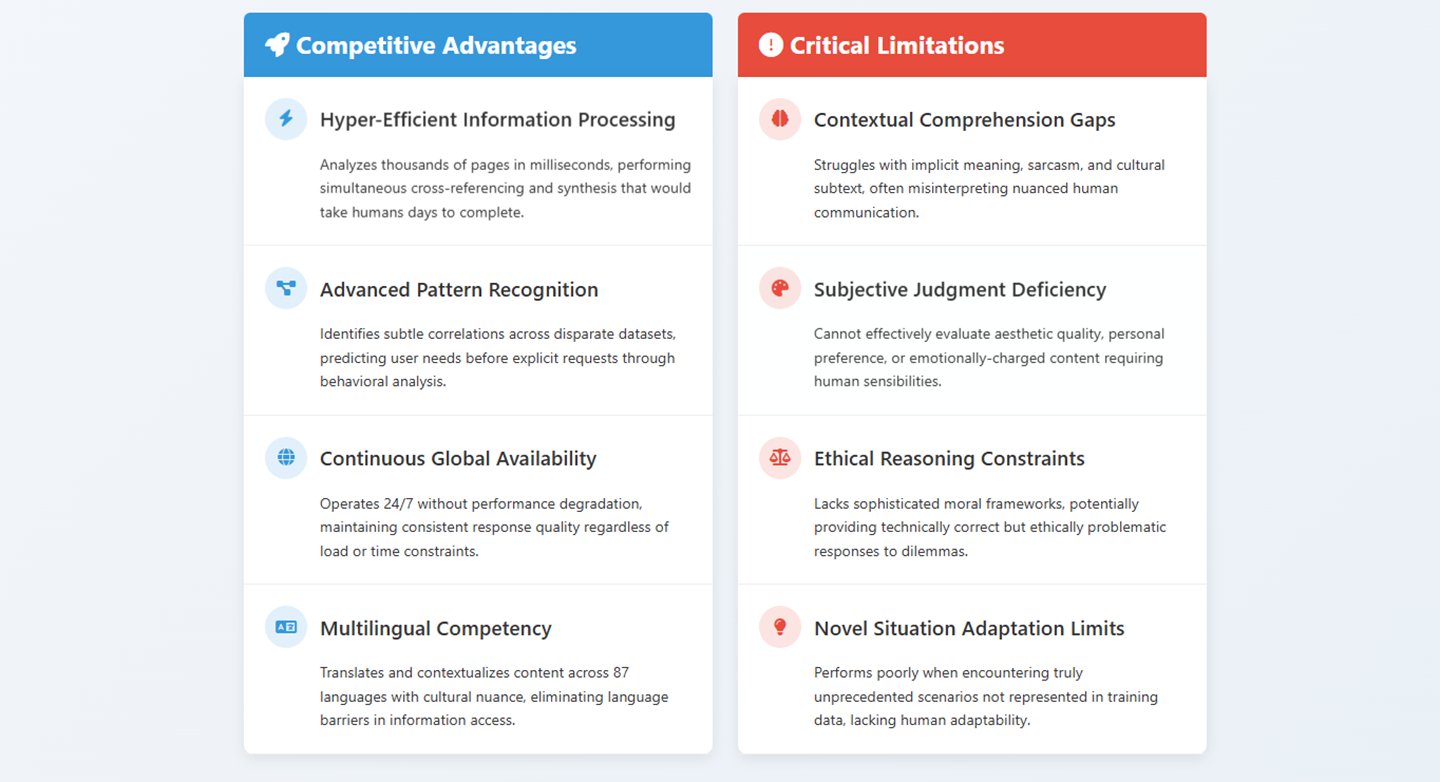As we navigate through the digital age, one technology stands out as a game-changer in how we interact with the web: the AI Browser. This revolutionary fusion of artificial intelligence and web browsing has transformed from a futuristic concept to an everyday reality, fundamentally altering our relationship with information and digital content.
The AI Browser represents more than just a technological advancement; it embodies a paradigm shift in how we consume, process, and interact with online information. By integrating sophisticated AI algorithms directly into our browsing experience, these tools have created a more intuitive, efficient, and personalized way to navigate the vast expanse of the internet. From simple search enhancements to complex content analysis and generation, Browser AI has evolved into an indispensable companion for millions of users worldwide.

How Did AI Browser Technology Evolve Over Time?
The Early Days: Foundation and Simple Implementations
The journey of AI Browser development began in the early 2000s with rudimentary implementations of machine learning algorithms in web browsers. Initially, these systems were limited to basic pattern recognition and simple recommendation engines. Early pioneers like Google's PageRank algorithm, while not embedded directly in browsers, laid the groundwork for intelligent content ranking that would later become central to AI Browser functionality.
The first true AI Browser features emerged around 2010 with the introduction of predictive text and autocomplete functions. Mozilla Firefox and Google Chrome began incorporating basic AI-driven suggestions, though these were relatively primitive compared to today's standards. These early systems could handle simple tasks like predicting search queries and suggesting frequently visited websites, but they lacked the sophisticated natural language processing capabilities we see today.
The Breakthrough Moment: Deep Learning Integration
The real transformation began around 2016-2017 when major tech companies started integrating deep learning models directly into browser architectures. Google's introduction of neural networks in Chrome marked a pivotal turning point, enabling more sophisticated content analysis and user behavior prediction. This period saw the emergence of AI Browser capabilities that could understand context, analyze user intent, and provide more relevant suggestions.
Microsoft's Edge browser made significant strides during this period by incorporating Cortana integration, allowing users to interact with their Browser AI through voice commands and natural language queries. This development demonstrated how AI Browser technology could extend beyond traditional text-based interactions to encompass multimodal communication.
Current State: Advanced AI Browser Capabilities
Today's AI Browser landscape is dominated by sophisticated systems that can handle complex tasks with remarkable accuracy. Modern Browser AI implementations leverage large language models (LLMs) and transformer architectures to provide:
Advanced Content Summarization: Current AI Browser systems can analyze lengthy articles, research papers, and web content to provide concise, accurate summaries. This capability utilizes natural language processing techniques that understand context, identify key themes, and extract relevant information while maintaining the original meaning.
Intelligent Translation and Localization: Modern AI Browser technology can translate content in real-time while preserving cultural nuances and technical terminology. These systems go beyond word-for-word translation to provide contextually appropriate interpretations.
Predictive User Interface Adaptation: Contemporary Browser AI can learn from user behavior patterns to customize interface elements, predict navigation paths, and optimize page loading sequences based on individual usage patterns.
Content Generation and Enhancement: Advanced AI Browser systems can now generate content, complete forms, and even write emails based on user prompts and context clues gathered from browsing behavior.
What Are the Key Advantages and Limitations of AI Browser Technology?
The Competitive Edge: Where AI Browser Excels
The superiority of AI Browser technology over traditional manual browsing becomes apparent in several key areas:
Speed and Efficiency in Information Processing: AI Browser systems can analyze and process vast amounts of information in milliseconds, a task that would take humans hours or days to complete. For instance, when researching a complex topic, an AI Browser can simultaneously scan multiple sources, identify relevant information, cross-reference facts, and present a comprehensive overview in seconds.
Pattern Recognition and Predictive Capabilities: Browser AI excels at identifying patterns in user behavior and web content that humans might miss. These systems can predict what information users are likely to need next, preload relevant content, and suggest related resources based on complex algorithmic analysis of browsing patterns, search history, and content consumption habits.
24/7 Availability and Consistency: Unlike human assistants, AI Browser technology maintains consistent performance regardless of time, workload, or external factors. This reliability ensures users receive the same quality of service whether they're browsing at 3 AM or during peak hours.
Multilingual and Cross-Cultural Competency: Modern AI Browser systems can seamlessly switch between languages, understand cultural contexts, and provide localized content recommendations without the limitations that human language barriers might impose.
The Reality Check: Current Limitations and Challenges
Despite impressive capabilities, AI Browser technology faces significant limitations that require human intervention:
Contextual Understanding Gaps: While AI Browser systems excel at processing explicit information, they often struggle with implicit context, cultural nuances, and emotional subtext that humans naturally understand. For example, sarcasm, irony, or culturally specific references may be misinterpreted or overlooked entirely.
Creative and Subjective Decision-Making: Browser AI typically falters when dealing with subjective judgments, creative tasks, or decisions that require emotional intelligence. While these systems can analyze technical specifications of products, they may struggle to understand personal preferences, aesthetic choices, or emotional factors that influence human decision-making.
Ethical and Moral Reasoning: AI Browser technology currently lacks the sophisticated moral reasoning capabilities that humans possess. When faced with ethical dilemmas or situations requiring value judgments, these systems may provide technically correct but ethically questionable responses.
Real-Time Adaptation to Novel Situations: Although AI Browser systems are trained on vast datasets, they may struggle with entirely new situations or emerging trends that weren't part of their training data. Human adaptability and intuition remain superior in rapidly evolving scenarios.
The root causes of these limitations stem from the fundamental nature of current AI architectures. Most AI Browser systems rely on pattern matching and statistical analysis rather than true understanding or consciousness. They process information based on probability distributions and learned associations rather than genuine comprehension of meaning and context.

How Is AI Browser Technology Transforming Different Industries?
Positive Transformations Across Sectors
The impact of AI Browser technology extends far beyond individual user convenience, creating substantial transformations across multiple industries:
Education and Research: AI Browser tools have revolutionized how students and researchers access and process information. Universities report that students using Browser AI can complete literature reviews 60% faster than traditional methods, while maintaining comparable accuracy levels. These tools help democratize access to complex information by providing simplified explanations and translations of academic content.
Healthcare and Medical Research: Medical professionals increasingly rely on AI Browser technology to stay current with rapidly evolving medical literature. These systems can analyze thousands of research papers, identify relevant treatment protocols, and flag potential drug interactions in real-time, significantly improving patient care quality and reducing medical errors.
Financial Services: In the financial sector, AI Browser technology enables real-time market analysis, regulatory compliance monitoring, and risk assessment. Financial advisors report being able to provide more comprehensive market insights to clients, while compliance teams can monitor regulatory changes more effectively.
Content Creation and Marketing: Digital marketing agencies have embraced AI Browser tools for content research, trend analysis, and competitive intelligence. These systems can analyze competitor strategies, identify emerging trends, and suggest content topics with unprecedented speed and accuracy.
The Disruption Challenge: Industries Under Pressure
However, the rise of AI Browser technology also presents significant challenges for certain sectors:
Traditional Research and Analysis Services: Market research firms and business intelligence companies face increasing pressure as AI Browser tools can perform many of their traditional services at a fraction of the cost. Smaller research firms report losing clients to automated solutions, forcing industry consolidation and service repositioning.
Educational Support Services: Tutoring services, academic writing assistance, and educational consulting businesses are experiencing disruption as students increasingly turn to AI Browser tools for homework help and research assistance.
Translation and Localization Services: Professional translation services face competition from advanced AI Browser translation capabilities, particularly for routine document translation and basic localization tasks.
Data Entry and Administrative Support: Many administrative roles involving data gathering, report compilation, and basic analysis are being automated through AI Browser integration, leading to job displacement in these sectors.
The magnitude of these disruptions varies significantly by region and market maturity. Industries in developed markets report more immediate impacts, while emerging markets show more gradual adoption patterns.
What Ethical Challenges Does AI Browser Technology Present?
The Copyright and Intellectual Property Dilemma
One of the most pressing ethical concerns surrounding AI Browser technology involves intellectual property rights and content ownership. When Browser AI systems analyze, summarize, or generate content based on existing web materials, complex questions arise about fair use, attribution, and compensation.
The fundamental issue stems from how AI Browser systems process and utilize copyrighted content. These systems often analyze millions of web pages, articles, and documents to generate responses or summaries. While this analysis might fall under fair use provisions, the line becomes blurred when AI Browser tools create derivative works or comprehensive summaries that could substitute for original content.
Publishers and content creators express growing concern about AI Browser systems potentially reducing traffic to their websites by providing complete answers within the browser interface, thereby diminishing ad revenue and subscription incentives. This concern has led to legal challenges and calls for new regulatory frameworks governing AI Browser operations.
Information Security and Privacy Risks
AI Browser technology presents unprecedented privacy challenges due to the intimate nature of browsing behavior and the vast amounts of personal data these systems collect and analyze. Unlike traditional browsers that primarily store local data, AI Browser systems often require cloud-based processing, creating additional security vulnerabilities.
The depth of analysis that Browser AI performs means these systems can infer sensitive information about users' health conditions, financial situations, political beliefs, and personal relationships based on browsing patterns. This capability raises serious questions about data protection, consent, and the potential for surveillance or discrimination.
Furthermore, the integration of AI Browser technology with other services creates complex data sharing scenarios where user information might be accessed by multiple entities, making it difficult for users to understand and control how their data is being used.
The Misinformation and Accuracy Challenge
AI Browser systems can inadvertently amplify misinformation or generate plausible-sounding but incorrect information. This risk is particularly concerning because users may place higher trust in AI-generated content, assuming it represents an objective analysis of multiple sources.
The challenge is compounded by the black-box nature of many AI Browser algorithms, making it difficult to trace how specific conclusions were reached or to identify potential biases in the underlying training data. This opacity can lead to the propagation of subtle biases or errors that may be difficult to detect but have significant cumulative effects on user understanding and decision-making.
Dependency and Skill Atrophy Concerns
As AI Browser technology becomes more sophisticated and convenient, there's growing concern about users becoming overly dependent on these tools, potentially leading to the atrophy of critical thinking and research skills. Educational institutions worry that students may lose the ability to conduct independent research, evaluate sources critically, or develop original thoughts when AI Browser tools provide easy answers.
This dependency risk extends beyond education to professional environments where the convenience of AI Browser assistance might discourage deep thinking and thorough analysis, potentially leading to poorer decision-making in complex situations that require nuanced human judgment.

How Can We Harness AI Browser Technology Responsibly?
Addressing Industry Disruption Through Adaptation
For industries facing disruption from AI Browser technology, the key lies in strategic adaptation rather than resistance. Traditional research and analysis firms can pivot by focusing on high-value interpretation services, strategic consulting, and specialized domain expertise that AI Browser systems cannot replicate.
Upskilling and Reskilling Initiatives: Companies in affected industries should invest in comprehensive training programs that help employees develop skills complementary to AI Browser capabilities.
Hybrid Service Models: Successful adaptation often involves creating hybrid models that combine AI Browser efficiency with human expertise. Translation services can use AI Browser tools for initial drafts while human experts handle cultural nuances and quality assurance. Similarly, research firms can leverage AI Browser technology for data gathering while focusing human resources on analysis and strategic recommendations.
Specialization in High-Touch Areas: Industries should identify areas where human touch remains essential. In education, while AI Browser tools can provide information, human educators excel at motivation, personalized learning strategies, and emotional support. Healthcare providers can use AI Browser technology for research while focusing on patient care and complex diagnostic reasoning.
Mitigating Ethical Risks Through Best Practices
Addressing the ethical challenges of AI Browser technology requires proactive measures from both developers and users:
Implementing Robust Attribution Systems: AI Browser developers should create systems that properly attribute sources and provide clear pathways for users to access original content. This approach addresses copyright concerns while maintaining the value proposition of AI Browser efficiency.
Enhancing Transparency and Explainability: Browser AI systems should provide clear explanations of how information is processed and conclusions are reached. Users should understand the limitations and confidence levels of AI-generated content, enabling more informed decision-making.
Establishing Privacy-First Architectures: AI Browser technology should be designed with privacy protection as a fundamental principle, implementing techniques like federated learning and differential privacy to minimize data exposure while maintaining functionality.
Creating User Control Mechanisms: Users should have granular control over their data usage, AI Browser functionality, and privacy settings. This includes options to limit data collection, choose processing locations, and understand data sharing practices.
Fostering Responsible Usage Patterns
Individual users and organizations can adopt practices that maximize AI Browser benefits while minimizing risks:
Developing Critical Evaluation Skills: Users should treat AI Browser outputs as starting points for investigation rather than definitive answers. This involves fact-checking important information, consulting multiple sources, and maintaining healthy skepticism about AI-generated content.
Maintaining Intellectual Curiosity: While AI Browser tools can provide quick answers, users should continue to engage in deep learning and critical thinking. This might involve using AI Browser technology for initial research while conducting thorough analysis independently.
Establishing Ethical Guidelines: Organizations should develop clear policies governing AI Browser usage, including guidelines for academic integrity, professional ethics, and data protection. These policies should be regularly updated as technology evolves.
Supporting Sustainable Content Ecosystems: Users can contribute to ethical AI Browser development by supporting original content creators, being mindful of copyright issues, and choosing AI Browser services that prioritize fair compensation and attribution practices.
FAQs
Q: How can I ensure the information provided by AI Browser tools is accurate?
A: To verify AI Browser information accuracy, cross-reference important facts with multiple authoritative sources, check for recent updates on time-sensitive topics, and be particularly cautious with technical or specialized information. Consider AI Browser outputs as starting points for research rather than definitive answers, especially for critical decisions.
Q: What should I do if I suspect AI Browser technology is violating copyright or privacy rights?
A: If you encounter potential copyright violations, document the specific instances and contact the AI Browser service provider through their official channels. For privacy concerns, review your privacy settings, consider using privacy-focused Browser AI alternatives, and report serious violations to relevant regulatory authorities in your jurisdiction.
Q: Are there any industries that are immune to AI Browser disruption?
A: While no industry is completely immune, sectors requiring high levels of human interaction, creative problem-solving, or ethical judgment face less immediate disruption. Healthcare, education, creative services, and skilled trades are likely to see AI Browser technology as a supplement rather than a replacement for human expertise.
Conclusion
The evolution of AI Browser technology represents one of the most significant developments in how we interact with digital information. From its humble beginnings as simple search enhancement tools to today's sophisticated systems capable of complex analysis and content generation, Browser AI has fundamentally transformed our relationship with the internet.
While the advantages of AI Browser technology are undeniable – from unprecedented speed and efficiency to 24/7 availability and multilingual capabilities – we must also acknowledge and address its limitations. The current gaps in contextual understanding, creative reasoning, and ethical judgment remind us that human intelligence remains irreplaceable in many contexts.
The transformative impact of AI Browser technology across industries presents both opportunities and challenges. While many sectors benefit from enhanced efficiency and capabilities, others face disruption that requires strategic adaptation and innovative approaches to remain relevant.
Perhaps most importantly, the ethical challenges surrounding AI Browser technology – from copyright concerns to privacy risks and misinformation – require our immediate attention and proactive solutions. The responsible development and deployment of these tools will determine whether they serve as beneficial supplements to human intelligence or become sources of division and inequality.
The future of AI Browser technology is not predetermined – it will be shaped by the choices we make today regarding its development, regulation, and implementation. By approaching these decisions with wisdom, caution, and a commitment to human welfare, we can create a future where AI Browser technology enhances rather than diminishes our collective intelligence and capability.
 Submit Your AI Tool For FREE!Showcase Your Innovation To Thousands Of AI Enthusiasts!
Submit Your AI Tool For FREE!Showcase Your Innovation To Thousands Of AI Enthusiasts! Submit Your AI Tool For FREE!Showcase Your Innovation To Thousands Of AI Enthusiasts!
Submit Your AI Tool For FREE!Showcase Your Innovation To Thousands Of AI Enthusiasts! Submit Your AI Tool For FREE!Showcase Your Innovation To Thousands Of AI Enthusiasts!
Submit Your AI Tool For FREE!Showcase Your Innovation To Thousands Of AI Enthusiasts! Submit Your AI Tool For FREE!Showcase Your Innovation To Thousands Of AI Enthusiasts!
Submit Your AI Tool For FREE!Showcase Your Innovation To Thousands Of AI Enthusiasts! Submit Your AI Tool For FREE!Showcase Your Innovation To Thousands Of AI Enthusiasts!
Submit Your AI Tool For FREE!Showcase Your Innovation To Thousands Of AI Enthusiasts!






No comments yet. Be the first to comment!